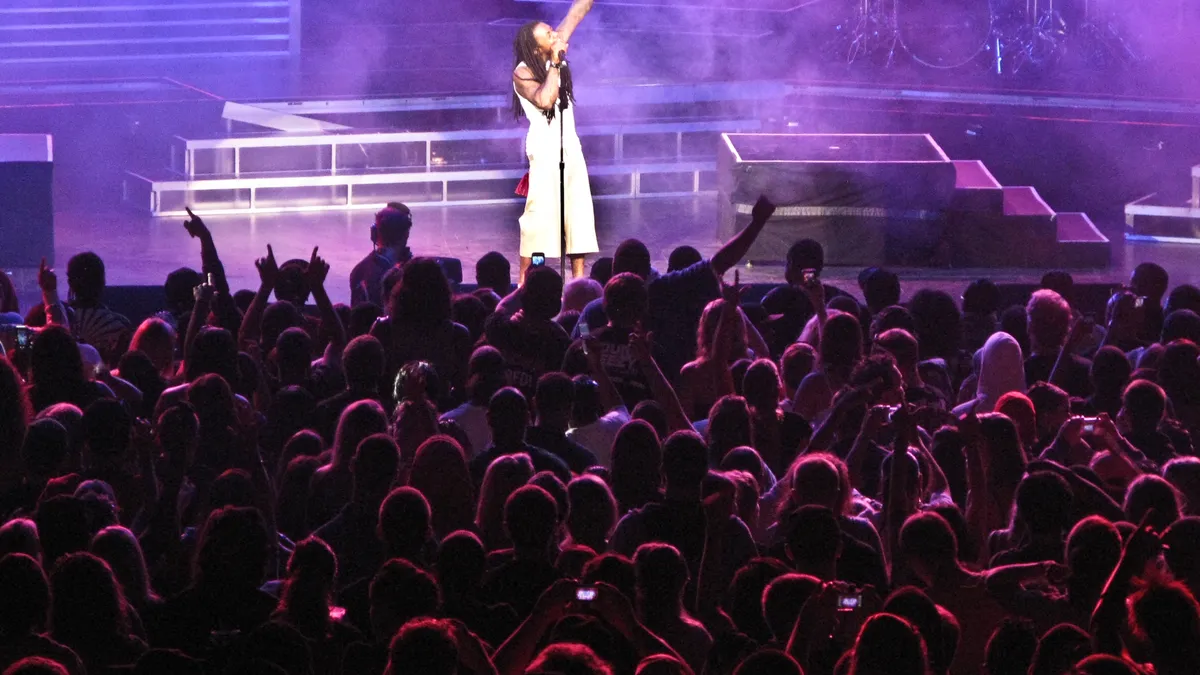It's not uncommon for colleges and universities to land big-name acts for campus events. In recent years, Northwestern University's Dillo Day festival has booked performers ranging from Kendrick Lamar to OK Go, Chance the Rapper and T-Pain have played Vanderbilt's Rites of Spring show, and the University of Oklahoma has hosted the White Stripes' Jack White — though the latter is unlikely to happen again following an unfortunate, much-bemoaned guacamole incident.
Still, a number of institutions haven't been so lucky, serving as cautionary tales when it comes to landing top entertainers for campus events. As you'll see, it often comes down to knowing whether the promoter you're in talks with is legit.
Alabama State duped in Lil' Wayne deal
In the most recent of these incidents, Alabama State University believed it had booked rapper Lil' Wayne for its Homecoming concert, which would have taken place Nov. 18. A statement from the university initially claimed it was duped by a promoter — a claim also made by Wayne's manager, Cortez Bryant, via Facebook just days after the school announced the show, according to AL.com. Students were refunded, but a "public apology" held by Student Government Association President Jeremy Crum and Alabama State President Gwendolyn Boyd the following day confused matters further, as the university said it found "nothing fraudulent" with promoter Millenium Age. An investigation is ongoing to figure out who made the booking error, according to the Times Free Press. Boyd told students that while Wayne would be replaced for a future concert, the school "can't afford a half-million dollar entertainer, but we can do something that you will enjoy."
The U of Hawaii's 'Wonder Blunder'
In November 2012, would-be promoters Marc Hubbard and Sean Barriero were indicted for wire fraud and illegal interstate transportation of money obtained through fraud, respectively, in a $200,000 fundraiser scam that involved false claims to book Stevie Wonder for a concert at the University of Hawaii. Proceeds were supposed to support the school's athletics programs, and the charges came a month after Hubbard received a cease-and-desist order from South Carolina officials over another fraudulent concert — this one involving Alicia Keys — for which he had raised $700,000.
Montclair State takes the bait in fake Nicki Minaj booking
Prior to the release of her debut album, rapper Nicki Minaj found herself at the center of a false booking scandal involving Montclair State University’s Fall Festival. According to MTV, the university had paid a bogus promoter about $35,000 for the rapper to appear, and fans had slept outside overnight to purchase $40 tickets to the show. Minaj herself clarified the situation via Twitter after a fan posted a photo of their ticket, writing, “What is this I’m hearing about an MSU concert? Where and when is this concert supposed to be? I feel so bad for people who were scammed.”
Montclair State wasn't the only institution duped that year regarding a Minaj appearance, though: MTV reported that Jacksonville State was among a string of others scammed.
Would you like to see more education news like this in your inbox on a daily basis? Subscribe to our Education Dive email newsletter! You may also want to read Education Dive's look at 5 keys to social media success for higher ed administrators.














